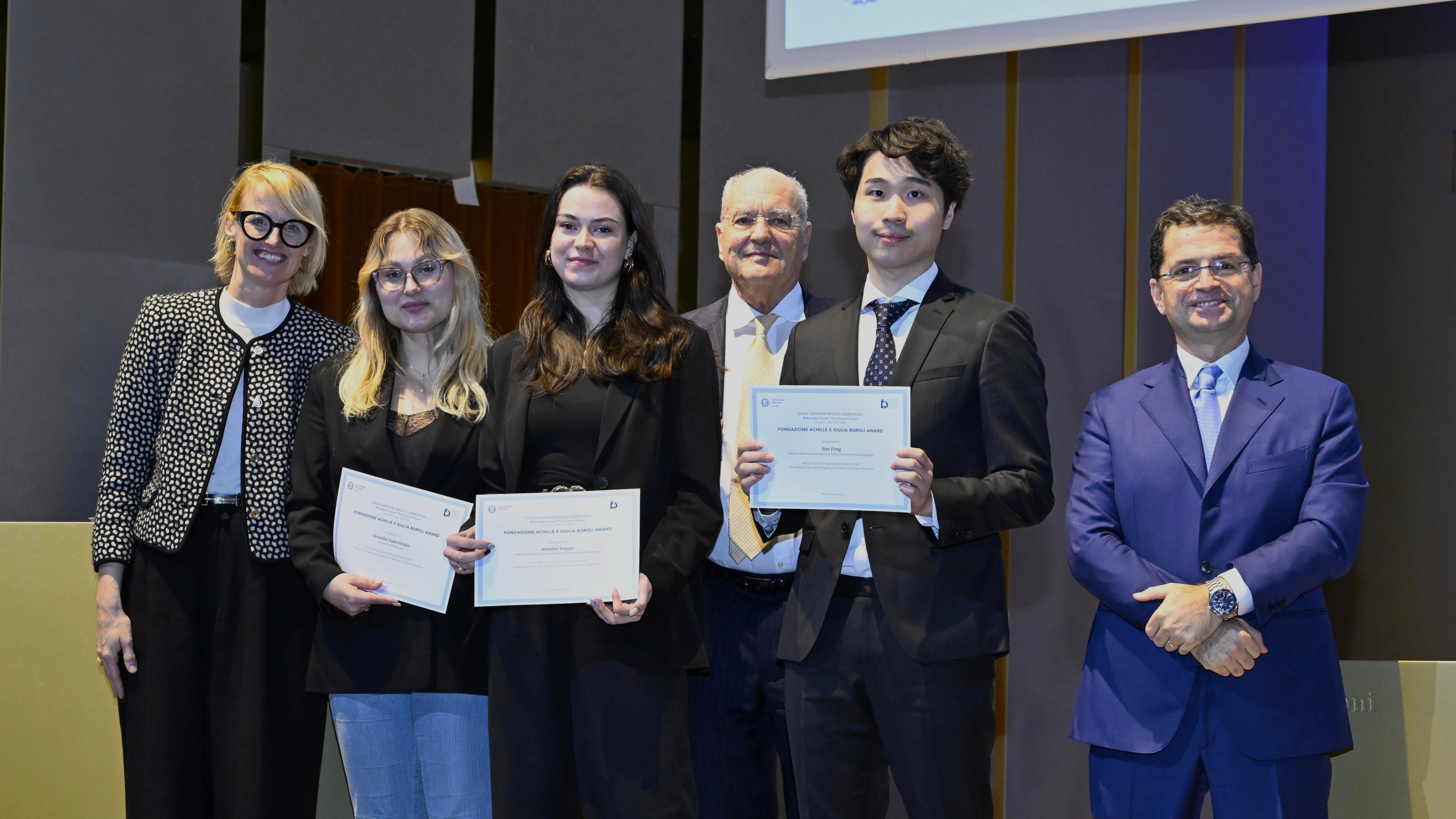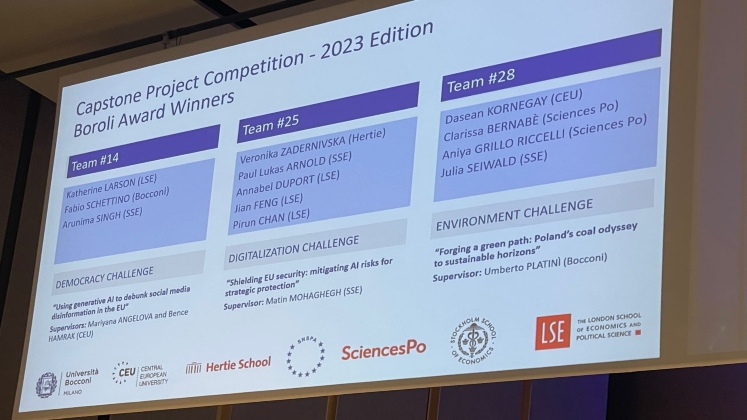What is the CIVICA multicampus course?
 CIVICA’s multi-campus course is a collaborative and innovative programme, designed and taught jointly by a team of professors from the alliance, for master’s students.
CIVICA’s multi-campus course is a collaborative and innovative programme, designed and taught jointly by a team of professors from the alliance, for master’s students.
The course critically explores the main European policy challenges and “The Future of Europe” through an innovative format: a series of live online lectures grouped in four modules and integrated with local activities. During the course students will work in transnational teams to complete a capstone assignment: develop policy solutions to EU-relevant policy problems.
More than 360 students across the CIVICA alliance have benefitted from this cross-border interdisciplinary experience over the last three academic years.

We interviewed two LSE students who recently completed the course, and as a result of their capstone assignments, won the prestigious Boroli prize.
Read about their experience and highlights below ↓
Annabel Duport is currently studying for an MSc in Environmental Policy and Regulation. She is passionate about issues related to sustainable development and climate change and hopes to work in ecological counselling after she graduates.
Jian Feng studied Social Policy and Sociology, with a focus on quantitative analysis, at the University of Leeds. He collaborated with Annabel and other teammates on AI regulation policy. He plans to graduate from LSE this fall with an MSc in Geographic Data Science and is interested in working in journalism.
Why did you want to come to LSE and why were you motivated to apply to the CIVICA multi-campus course?
Annabel: I decided to study at LSE because of its prestigious reputation in the domain of sustainable study. I wanted to join a community of like-minded students and discuss topics that will impact our generation and future ones. The CIVICA multi-campus course was a great way to apply my knowledge to practical issues the EU is currently confronted with. The opportunity to be taught by international professors and meet peers from other countries was also very exciting.
Jian: I wanted to deepen my expertise in social policy and data analysis after studying and working in Leeds. Upon receiving my offer, I was intrigued by an email about the multi-campus course. Because I am deeply interested in the future of Europe, I thought this knowledge would be beneficial.
What did you work on in your capstone group project? What universities did your other team members come from?
Annabel: For our capstone project, we worked on Digitalisation and, specifically, the spread of misinformation. It tackled issues such as accountability, transparency, and data privacy within AI systems. I had the pleasure of working with Jian Feng and Pirun Chan, also from LSE, Veronika Zadernivska from Hertie School, and Paul Arnold from the Stockholm School of Economics.
How do you hope this experience will benefit you?
Annabel: I believe the CIVICA course really helped me understand and be open to other points of view. It was a great opportunity to share with people from different backgrounds, and it really enriched my knowledge. The course also required us to produce a policy paper, which is a great way to apply research skills and critical analysis, skills I will need for my future career.
Jian: I hope to attend more CIVICA events and will definitely promote this opportunity to new LSE student students. I want to join more CIVICA research groups and hope our link won’t end here.
What is your main takeaway from participating in the CIVICA Multi-campus course?
Annabel: My main takeaway is the importance of working as a team. We produced some great work in a limited time frame because we all participated in making it better. Relying on peers and working in collaboration to produce ideas was definitely the most important part of this experience.
Jian: Commitment. It was a big commitment to go to every online lecture and follow up with some reading but I found it very helpful to keep in touch with our project supervisor and my groupmates because their knowledge was priceless. Do as much as you can, learn lots and enjoy it.
Do you have any advice for people who are thinking about applying but aren’t sure?
Annabel: I would encourage everyone to give it a go. I applied without giving it much thought because I believed it would only benefit me since the course is taught by some of the best teachers in Europe. It was so great to be able to network with other students, and the capstone project was very enriching; working on a policy paper and a policy brief is relatively new for me and applying what I have learned to a real case scenario was really fulfilling. Don’t pass an opportunity like this one!
Why should future students take part in this opportunity?
Jian: At LSE where lots of opportunities are available yet competitive, I’d suggest carefully considering what truly interests you and apply for it once there is an opportunity. You can never foresee what surprise and journey it will bring you. If you care about sustainability, AI policy, international affairs, immigration issue, then apply. You won’t get lots of chances to learn from so many talented professors and colleagues. Plus, a final report such as this brief will be helpful for future applications.
See more opportunities to engage with CIVICA here.
Photos ©Bocconi University and Jian Feng